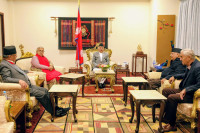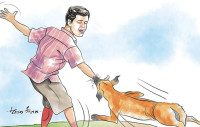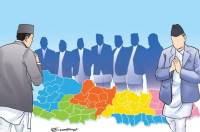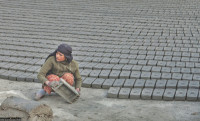Opinion
Welcome aboard
Implementation of the new constitution will help mainstream persons with disabilities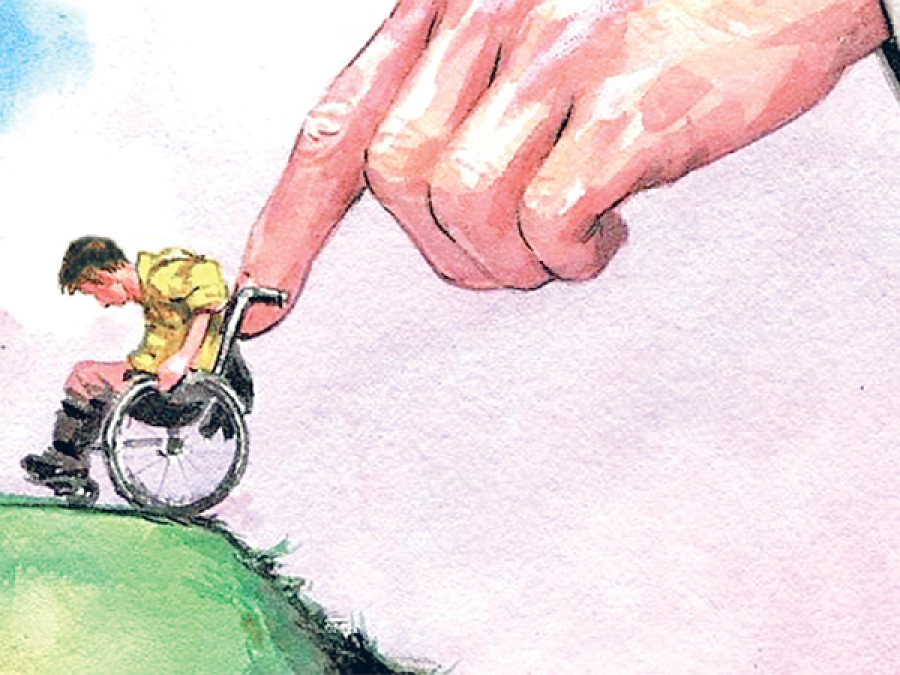
Birendra Raj Pokharel
As persons with disabilities were not specifically addressed in Nepal’s past constitutions, they remained invisible during the implementation of legislations and development plans to reduce national poverty. The disability community has thus been pushing for a participatory framework to guide a sustainable development plan as the time to formulate relevant laws and policies to enact the constitution is fast-approaching. A gap between policy and practice continues to exist despite the strong commitment of the political parties to disability-inclusive development. As a result, there are varied barriers to systematically integrating and mainstreaming disability in policies and programmes besides a dearth of adequate data on disability.
The disability community has voiced strong concerns over past inequalities and exclusion of persons with disabilities in the state mechanism. This reflects a normative shift to a rights-based approach to disability, most clearly exemplified by the ratification of the Convention on the Rights of Persons with Disabilities (CRPD) and its Optional Protocol by the Legislative-Parliament on December 27, 2009. Besides that, the provisions concerning disability that have been enshrined in the new constitution are promising.
Constructive constitution
The 2015 Constitution has addressed the issue of rights to equality for persons with disabilities in Article 18. It states that no discrimination shall be made against any citizen in the application of general laws on grounds of disability. Rights against untouchability and discrimination have been granted by Article 29 which is in line with Article 5 of the CRPD. Likewise, the right to education for persons with disabilities has been granted by Article 36 and it covers free and compulsory education. Article 39 grants the right to special protection to children with disabilities which is in line with Article 7 of the CRPD.
Article 42 guarantees the right to social justice for persons with disabilities, and its Sub-Article 3 states that citizens with disabilities shall have the right to live with the recognition of diversity with self-dignity and equal access to public services and facilities. This is in line with the CRPD principle of respecting the diversity of persons with disabilities. The provision on social justice also addresses the progressive democratic change that guarantees the right to get prioritised opportunities in education, health, employment, housing and social security and justice and appropriate dignity for persons with disabilities. Further, Article 43 mentions that persons with disabilities shall have the right to social security as provided by law. Article 51 of the constitution also states that the transportation sector should be made safe, managed and equitable for people with disabilities.
Most importantly, the right to political participation has been guaranteed by the CRPD, and this has been addressed in Articles 84, 86 and 175 of the constitution. These provisions oblige political parties to ensure participation of persons with disabilities while filing candidacies for elections to the National Assembly and federal and state parliaments under the proportional representation system. The representation of persons with disabilities has also been addressed in the Inclusive Commission in Article 258 of the constitution that is followed by Article 33 of the CRPD for the purpose of monitoring the execution of legislation and constitutional provisions in favour of persons with disabilities.
Long way to go
Despite such exemplary initiatives, significant efforts need to be made to ensure that these rights are translated into practical action in all the federal states. All the stakeholders should accord priority to capacity building to push for the enactment of the necessary laws to implement the constitutional provisions, conduct monitoring and evaluation, and ensure accountability in all the federal and local structures.
Since 1992, the International Day of Persons with Disabilities has been commemorated on December 3 annually to promote awareness and mobilise support for critical issues relating to the inclusion of persons with disabilities in society and development. The theme for 2015—Inclusion matters: Access and empowerment for people of all abilities—is compatible with Nepal’s political transformation. The estimated three million people with disabilities in Nepal face many barriers to inclusion in many key aspects of society. As a result, they do not enjoy access to employment, transportation, education and social and political participation. The right to participate in public life is essential to create sustainable democratic practices and active citizenship and reduce inequalities in society.
It is imperative that persons with disabilities are accepted as dynamic and diverse contributors to society with various needs. Specific attention should be given to persons with disabilities in the present post-earthquake reconstruction besides groups who are particularly marginalised like women, children, elderly people, migrants and persons with mental or intellectual disabilities. The disability community should work more closely with other sectors (gender and lesbian, gay, bisexual and transgender and other marginalised groups) on ways to optimise effective management of approaches to inclusion in holistic development for achieving the Sustainable Development Goals.
In order to fulfil the objectives of the goals of inclusion, investments in local development to influence the nature of international cooperative agreements, and the dissemination of information and advocacy of inclusive development need to be strengthened. Besides that, development cooperation should be pursued with the private sector, including multinationals, particularly in the low-medium income groups of persons with disabilities. The adoption of emerging technology for developing accessible publishing standards for education should be sought in all parts of the country.
Lack of consistent and reliable data has been an ongoing challenge in the area of disability and development. In this respect, it is essential that the government fulfil the capacity-building needs of local bodies to establish a reliable database of persons with disabilities. Investments in research need to be strengthened at every level to improve understanding, awareness and centrality of disability issues. Specific measures should be taken to mainstream disability at the federal, state and local levels to achieve short-, medium- and long-term results as mentioned in the Sustainable Development Goals.
Pokharel is chairperson of Action on Disability Rights and Development




 11.12°C Kathmandu
11.12°C Kathmandu
